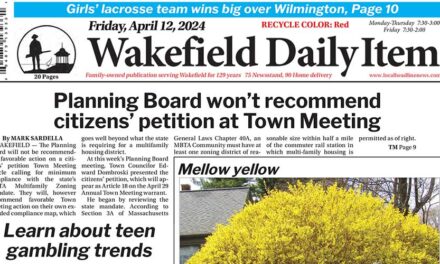Published in the March 21, 2019 edition.
By MARK SARDELLA
Whenever you see proposals to “expand voting rights,” or “make voting easier,” your BS detector should go off.
Since the right to vote is already guaranteed by law and voting is already easier than falling off a log, I am always suspicious of efforts to “expand” or “simplify” voting. At best, these measures are thinly veiled efforts to gain an electoral advantage. At worst, they facilitate the manipulation of election results.
As proof, I offer the fact that the same people who promote these election “reforms” always oppose the simplest, zero-cost measure to prevent voter fraud: voter ID.
Two recent examples of measures to “expand” or “simplify” voting were connected to the Orwellian sounding “For the People Act” just passed by the U.S. House of Representatives. Among other things, this bill purported to “expand voting rights.”
To test the sincerity of the “For the People Act,” an amendment was offered that would have reaffirmed that non-citizens cannot vote in U.S. elections.
Restricting voting to citizens. What a radical idea.
Well, every member of the Massachusetts congressional delegation voted against that amendment, including our own congressman, Marine combat veteran Seth Moulton.
As I follow the news these days, I often find myself wondering what my lifelong Democrat father would think. In this case, I don’t have to wonder. I can almost hear his voice. “I did not fight in World War II to give non-citizens the right to vote.”
Rep. Dan Crenshaw, himself a combat veteran, introduced the amendment affirming the prohibition against non-citizens voting. He summed up just how fatuous things have become.
“When I say it out loud it sounds like I am making it up,” Crenshaw said. “Because what kind of government would cancel out the votes of its own citizens and replace them with non-citizens, but not just any non-citizen, ones who entered our country illegally.”
The obvious answer is, no sane government would do so.
Another amendment to the “For the People Act” would have allowed children to vote. It would have lowered the voting age to 16.
All the arguments you hear — that 16-year-olds “work and pay taxes,” that lowering the voting age to 16 “will motivate students to engage with civics classes” and starting earlier “establishes voting as a lifelong habit,” are lovely sentiments. But the people making those arguments don’t actually care about those things. They care about winning elections.
Some of the arguments they think will convince you to lower the voting age are even better arguments against it.
“Lowering the voting age would force local politicians to listen to 16 and 17-year-olds and address their concerns,” we are told.
Unfortunately, our politicians listened to a local 16-year-old who came up with the idea of banning plastic bags in Wakefield. The last thing we need is to encourage more of this sort of behavior by giving them the right to vote.
Here’s another claim from those who want to give Tide Pod-eaters the vote. “On average 16-year-olds possess the same level of civic knowledge as 21-year-olds.”
Great. In most cases, that’s zero. Somehow, I remain unconvinced.
We hear a lot about “scientific consensus” these days. The current consensus among neuroscientists is that the human brain — specifically the area known as the “prefrontal cortex” — is not fully developed until at least the mid-20s, possibly until the 30s. The prefrontal cortex handles the majority of the brain’s executive functions, enabling us to assess risk, think ahead, evaluate ourselves, set goals and regulate our emotions.
In laymen’s terms, people who think 16-year-olds are mature enough to vote are science deniers.
We can’t keep juvenile murderers in jail because their immaturity diminishes their culpability. But somehow they’re mature enough to vote? If we’re going to allow 16-year-olds to vote, why not 14-year-olds, or 12-year-olds? Why not 4-year-olds? One toddler, one vote!
If anything, we should be raising the voting age, not lowering it. I base this not just on the neuroscience, but on my own personal experience. I regret every vote I cast prior to age 50.
I’m not suggesting that the voting age should be 50. I’m not irrational, after all. Thirty seems like a reasonable compromise.
Allowing non-citizens and children to vote are just two examples of ideas that are being advanced with straight faces today that would have been laughable 20 short years ago. Each time one of these previously inconceivable ideas comes along, we think, “Well, that’s it. It can’t possibly get any more absurd.”
But it always does.





